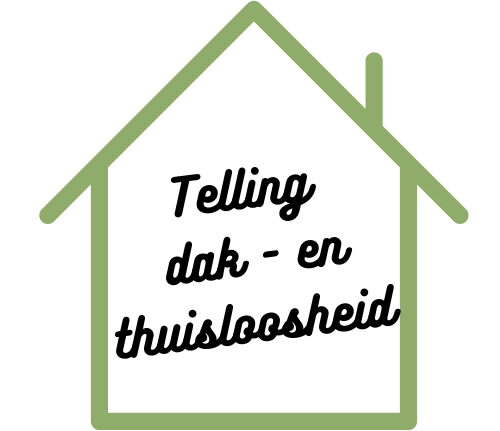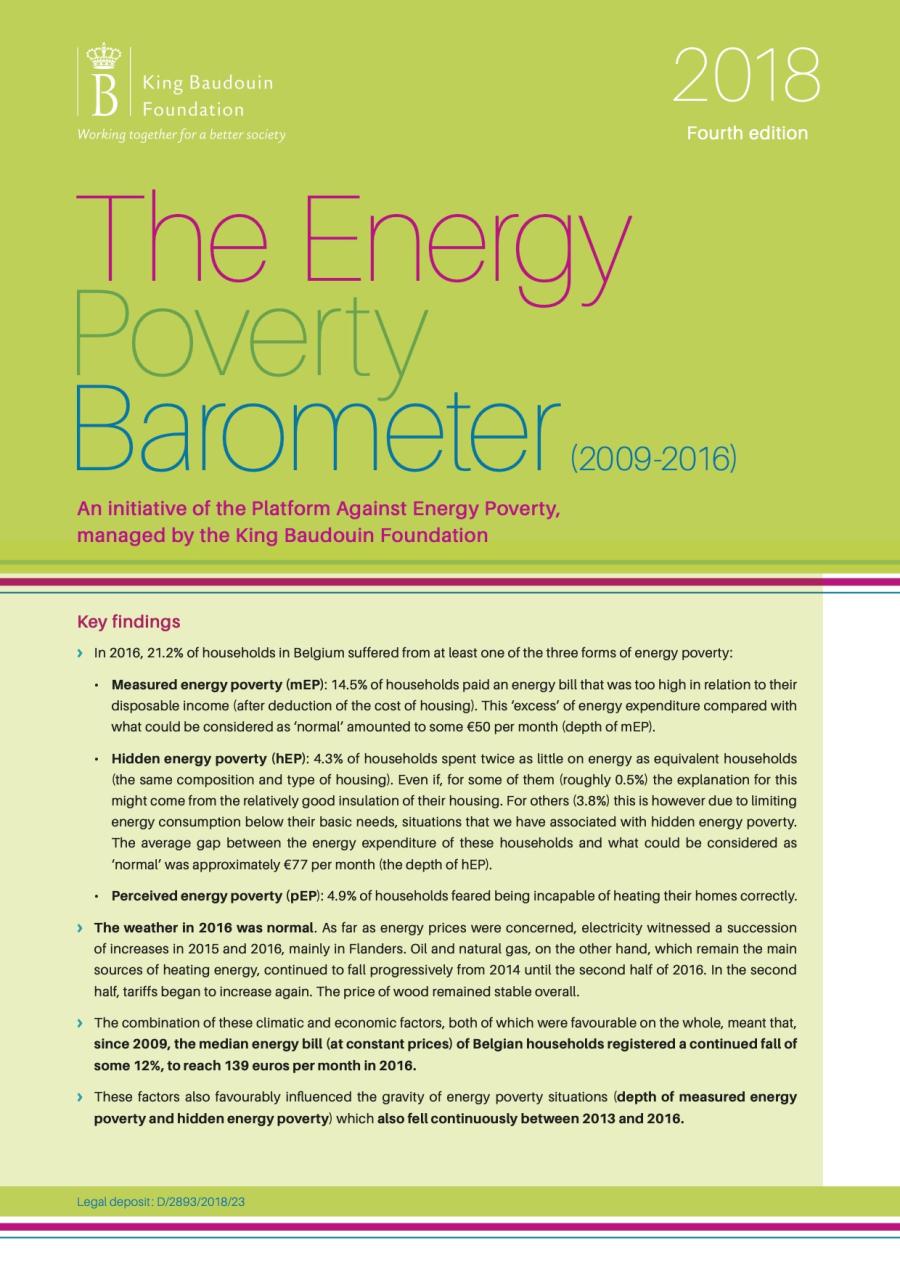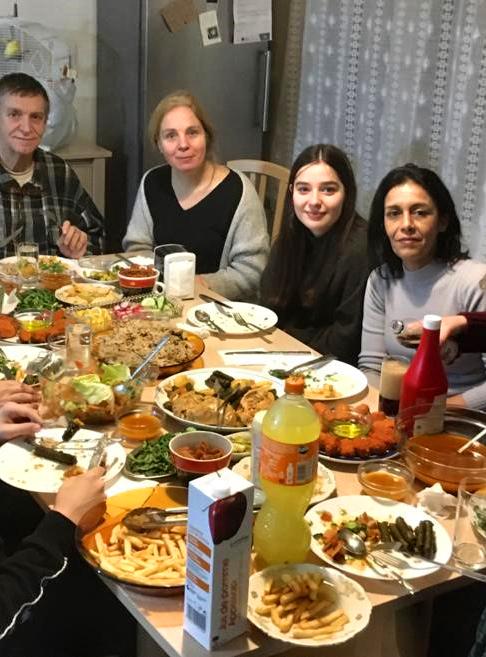
More than a roof over your head
Organisations are joining forces to provide housing for certified refugees
The refugee crisis has slipped out of the media spotlight, but the search for a home has not become any easier for certified refugees. Following on from its ‘reception and integration’ action plan, the Foundation has set up a new campaign to encourage solutions in the area of housing for this group, in addition to the housing initiatives in its Poverty programme. Through the Auton’Home call for projects it is financing initiatives that do just that. One example is De Woongenoten (the house mates) in Boechout.
“I carry on up to a hundred. If I haven’t found one then, I stop.” These are the words of a volunteer from Gastvrij Boechout, a group that was set up during the 2015 refugee crisis to support refugees looking for a home. “He stopped at a hundred”, says Bob Docx from Gastvrij Boechout (Boechout Hospitality) and De Woongenoten.
The housing market is not very accessible for vulnerable families, regardless of where they come from. Certified refugees and those with subsidiary protection are subject to additional pressures: once they have this status, they are given from two to a maximum of four months to find housing. They have to do this without knowing the language and also without the tools, networks, resources etc. that are needed to find a home. At the same time they face discrimination. Furthermore, there are not enough high-quality affordable rented homes for people on low incomes and too few homes for larger families. As a result, refugees often end up in informal arrangements, living in poor and unhealthy rented housing.
Constitution
Bob Docx therefore came up with the idea of working on the supply side to make it easier for refugees to rent a suitable home. “Housing is a right based on the constitution. A home is more than a roof over your head. It is the starting point that allows a person to gain a sustainable foothold in society and really become a citizen.” Together with a colleague he tried to set up a new housing cooperative called De Woongenoten (the house mates), that would buy and rent out homes. This turned out to be more difficult than expected. “Why should you reinvent something that already exists and is working well?” They approached Wooncoop, a housing cooperative in Ghent, to work out a scheme together.
De Woongenoten mobilises its supporters to invest money to purchase the homes; these shareholders are recorded in a separate section of Wooncoop’s register of partners. “For the first house we found twice as many people as we needed who were willing to invest. We also look for homes that are suitable to buy and then let to certified refugees.”
Solutions
Wooncoop takes care of the administrative aspects: contracts, contacting the bank, lettings and the General Meeting. “Before Wooncoop gives the green light, the case needs to be watertight. Our shareholders can also see via the General Meeting how their money is being used. This arrangement means that all those involved - tenants, Woongenoten and Wooncoop - have safety and security for the long term.”
It is initiatives like these that the King Baudouin Foundation has been seeking to encourage through its Auton’Home call for projects, which is intended to create housing solutions for certified refugees. Examples include sliding lease agreements, temporary occupation, co-housing and transit homes. Twelve projects, including De Woongenoten, received up to 25,000 euros during the summer. De Woongenoten is using this money to cover additional costs such as redecorating, as a way of keeping the rent down.
Zinab
In the past year the COVID-19 crisis has made it more difficult for De Woongenoten to look for new homes. In late 2019 Zinab, from Syria, moved with her children into a home in Boechout that had been purchased by De Woongenoten together with Wooncoop. It was Zinab’s fourth home in quite a short time. She had experienced some discrimination along the way. “Finding a home in Belgium is very difficult”, she says. “It makes us so sad, my children and me. I have walked until my feet were sore trying to find something.”
To find Zinab and other potential tenants, De Woongenoten works with the social lettings agency and with the non-profit association Mondiale Werken Regio Lier (Lier Region Global Work), an organisation that helps vulnerable groups, including refugees, to find a home, a training course or a job. The list of refugees looking for a home is very long, so Woonhulp, the relevant department of Mondiale Werken Regio Lier, assesses and weighs up the candidates. It takes into account factors such as the number of people in the household and how long they have already been searching for a home.
Always looking
“We were very quick to get involved with the project by De Woongenoten” says Tom Van de Vel from Mondiale Werken Regio Lier. “We are always looking for extra housing opportunities for people who are not having an easy time finding a home.” Mondiale Werken Regio Lier rents the home from Wooncoop and then sub-lets it to Zinab. If any problems arise they also serve as a point of contact for the tenant, just as De Woongenoten is for Wooncoop.
This organisation, which is based in Lier, also has its own housing projects which have already received support from the Foundation, including a housing fund to advance tenancy deposits and recently also support for transit homes for shorter lettings and some emergency housing. “We have seen that the COVID-19 crisis has made it much more difficult for people to use their informal networks and spend time staying with friends.”
In late 2019 Zinab, from Syria, moved with her children into a home in Boechout. A good reason for a festive diner.
Zinab also views the house in Boechout as an intermediate step. It is not quite their dream house. Eventually she is hoping to find a home with a garden. “A garden. Peace and quiet.” Still, it is a roof over her head.
About the Auton’home call for projects
The King Baudouin Foundation is developing a number of initiatives to promote access to housing for vulnerable groups. Continuing on from the ‘reception and integration’ action plan (2015-2019) it set up a campaign in the area of housing for certified refugees as a specific group. Through the Auton’home call for projects, 21 projects were selected that have come up with original, practical solutions to improve access to housing for certified refugees and those with subsidiary protection. Thirteen projects in Flanders and eight in the Wallonia-Brussels Federation have received grants totalling about 600,000 euros.
Other stories
Inspiring engagement!
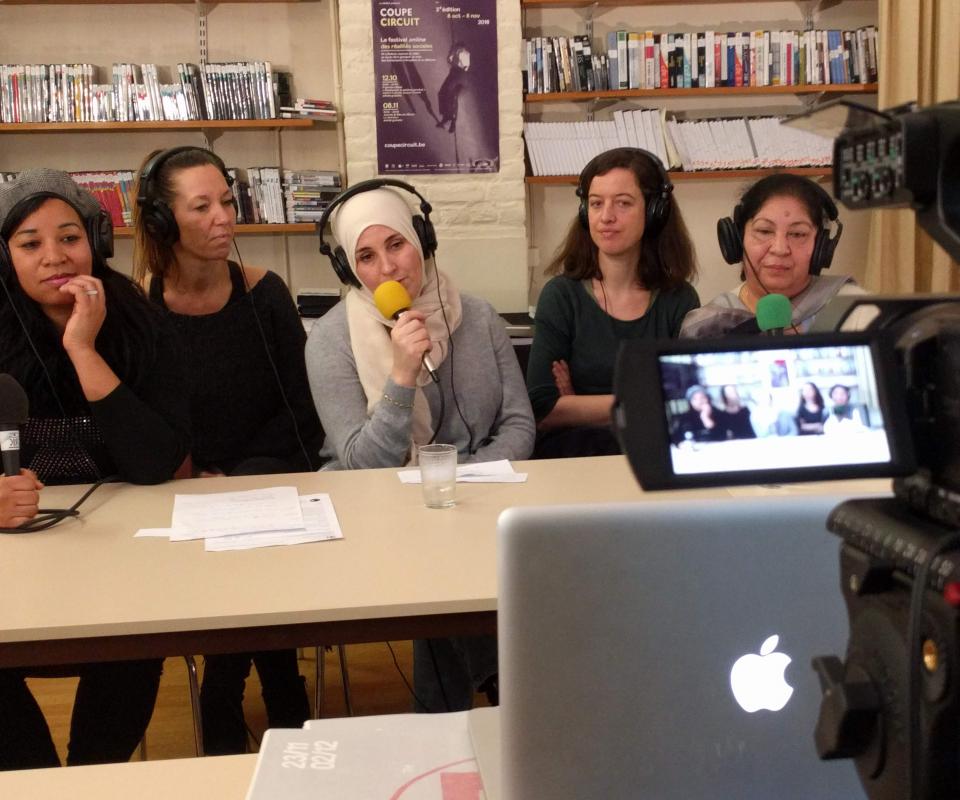
Promoting critical thinking and self-expression
"The women are encouraged to develop a critical view of the world around them and to play an active role in society."
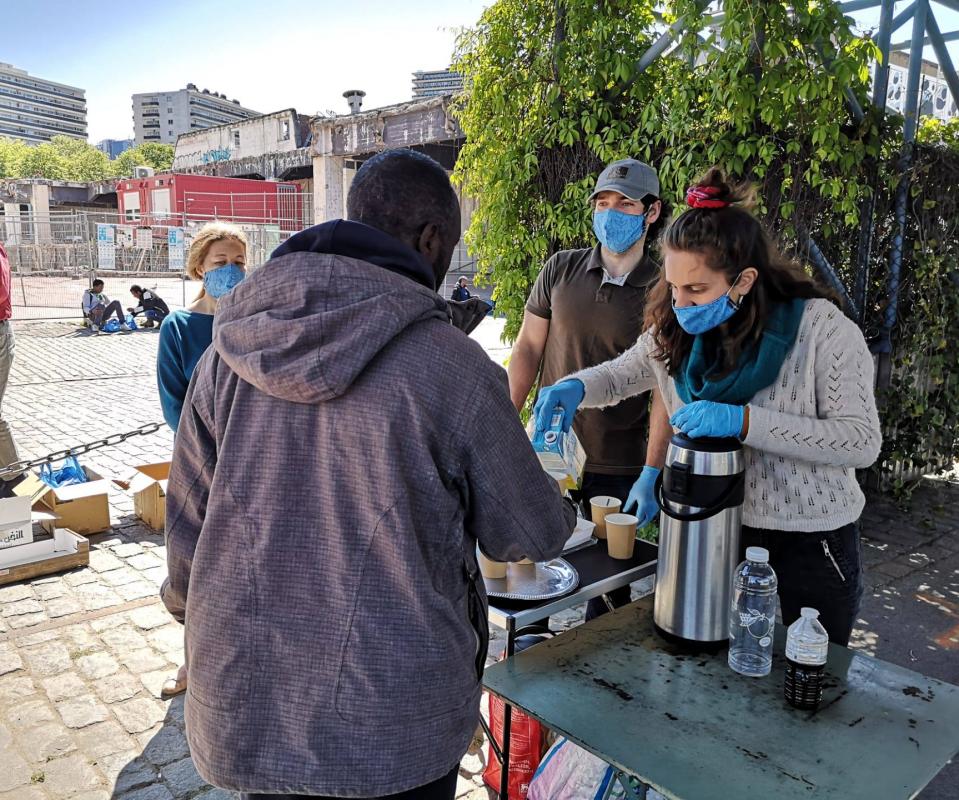
Les Cuistots Solidaires, helping refugees and winning hearts
"We provide food aid and a little humanity to extremely vulnerable people."

The search for somewhere to live: yes, but not alone!
Housing
This photo was taken before the COVID-19 crisis. "The ‘sliding tenancy’ reassures owners and increases the opportunities for vulnerable people to find somewhere to live."
Other calls
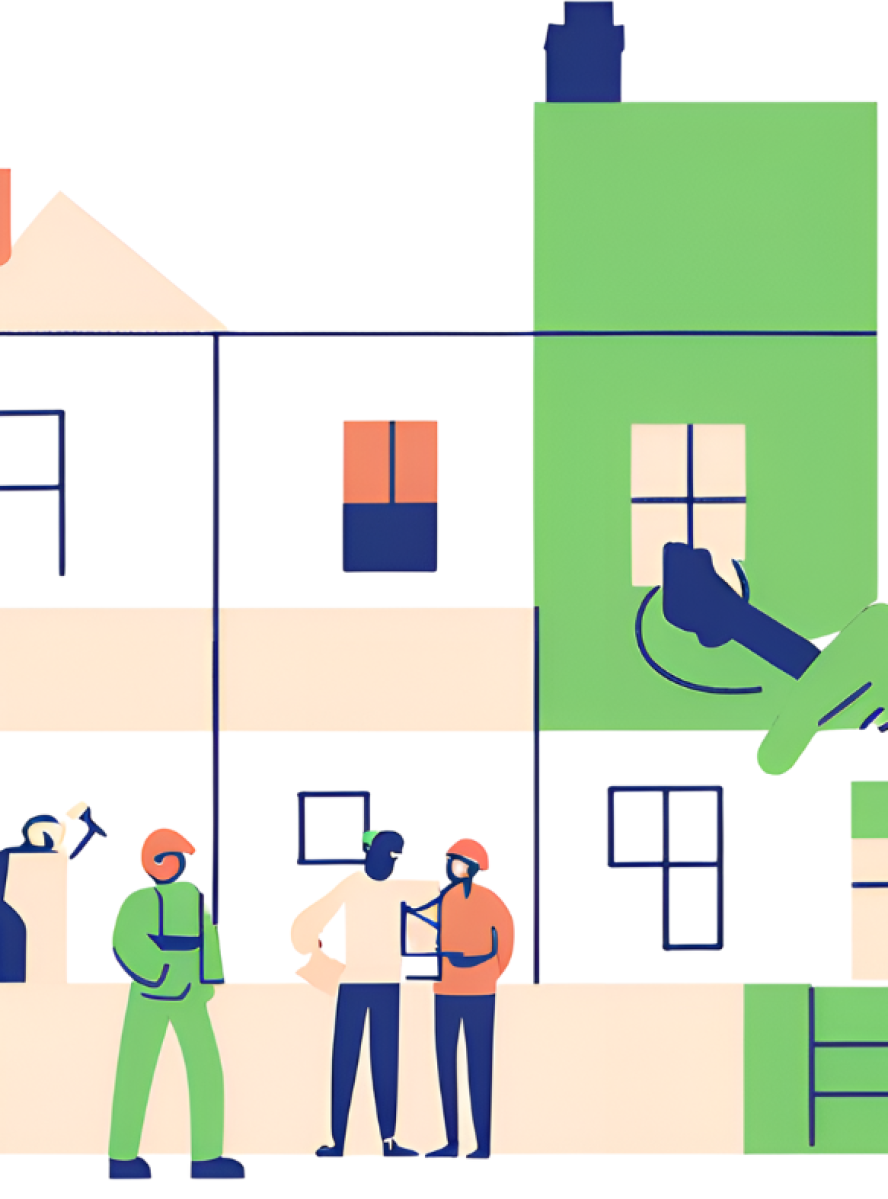
Housing Reno-Hope Award
A recognition for organisations creating additional housing through renovation for people in vulnerable situations
Selection announcedOther publications
Other philantrophy
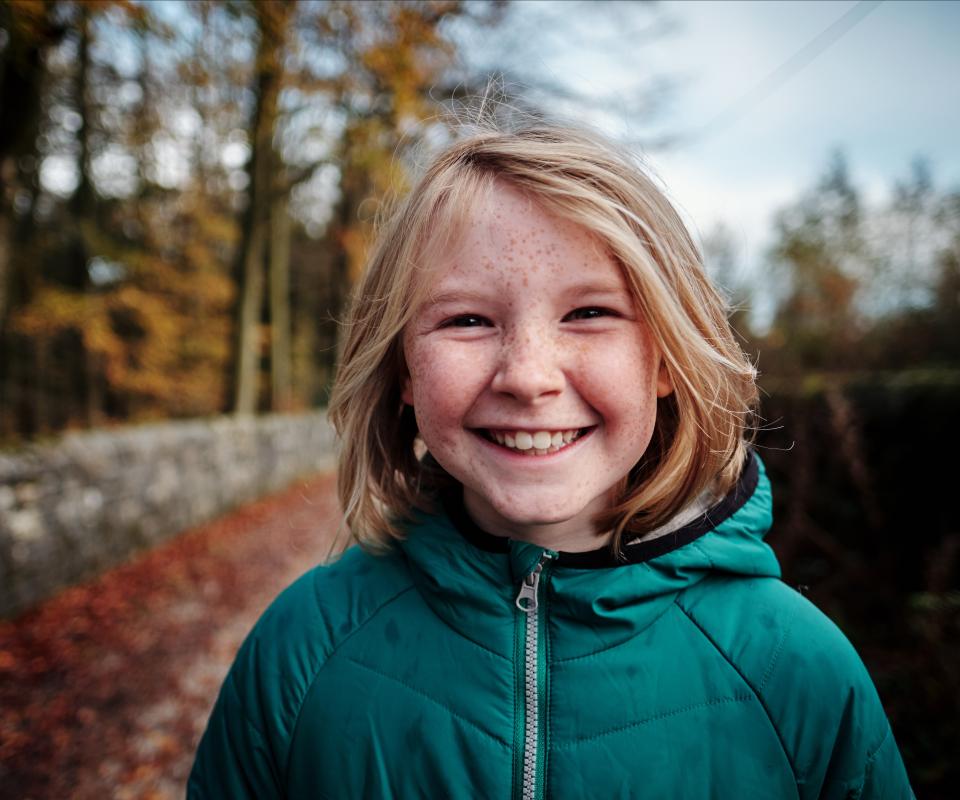
Bürgerfonds Ostbelgien
The Bürgerfonds OStbelgien is a fund by East Belgians for East Belgians. It supports initiatives and organisations that work for fellow citizens, true to the motto 'moving more t…

Ernest du Bois (Fund)
Support for promising engineering students as well as for projects combatting water poverty.
Hestia (Fund)
The Fund is committed to providing quality housing for people in need, supporting social economy initiatives and allocating loans to African entrepreneurs.
Other press releases

Homelessness: establishing numbers to better fight the problem
Results of homelessness counts, organised at the end of 2021 on the initiative of the KBF in Charleroi, Namur, the southern part of West Flanders and the Vilvoorde area.
